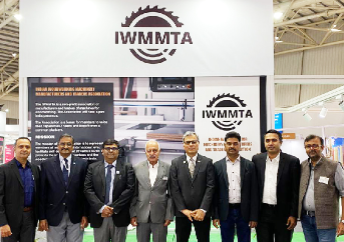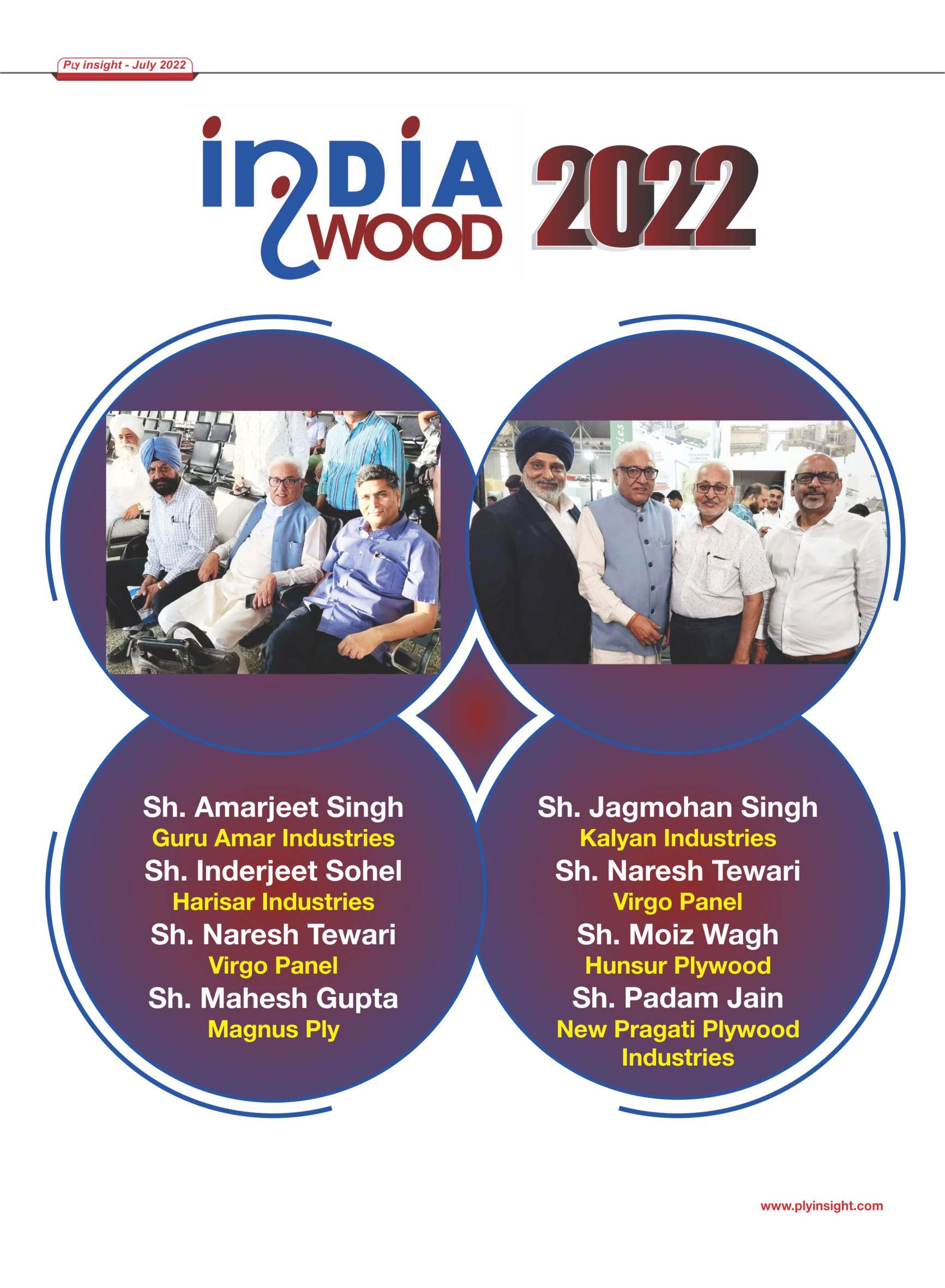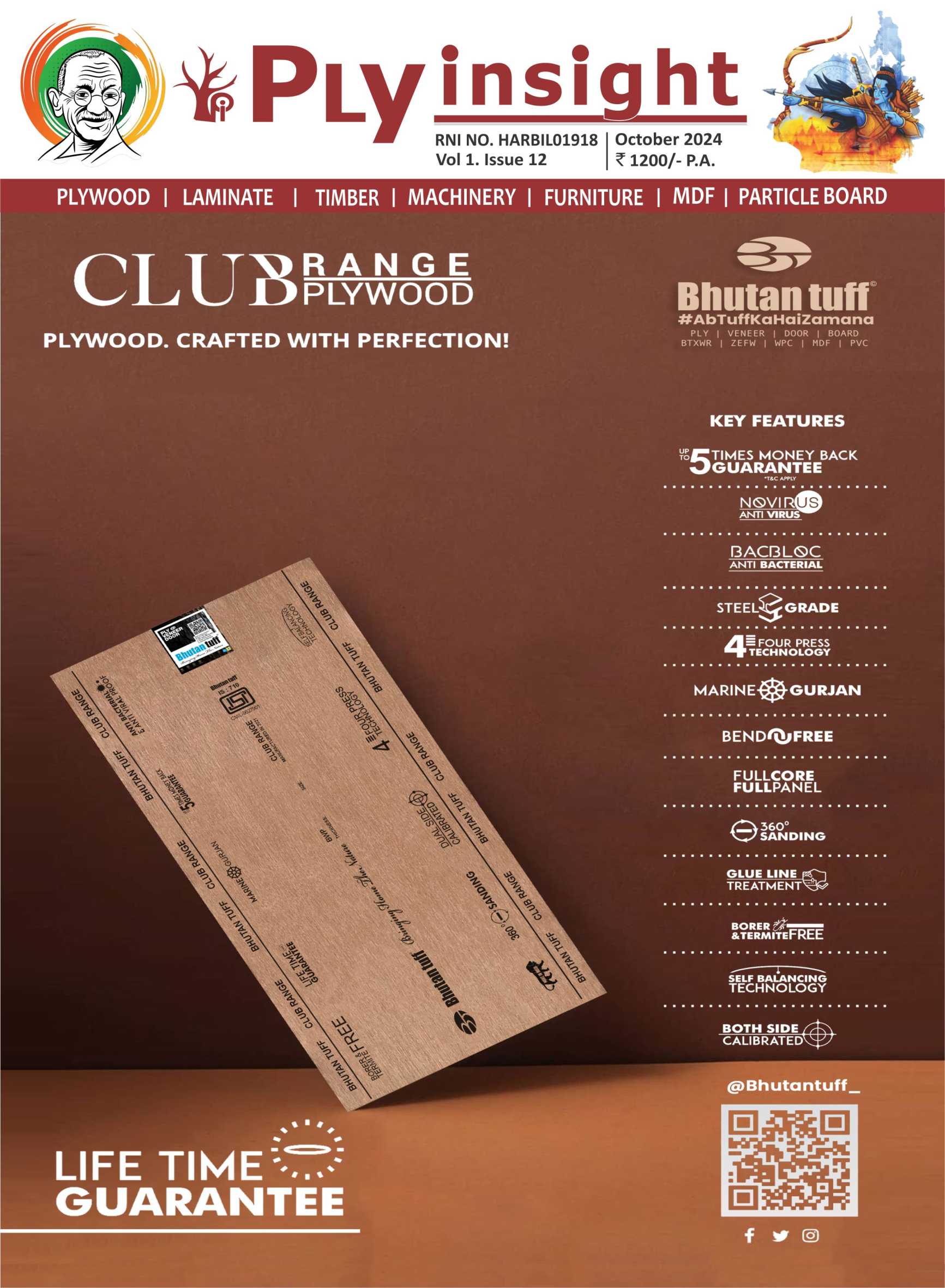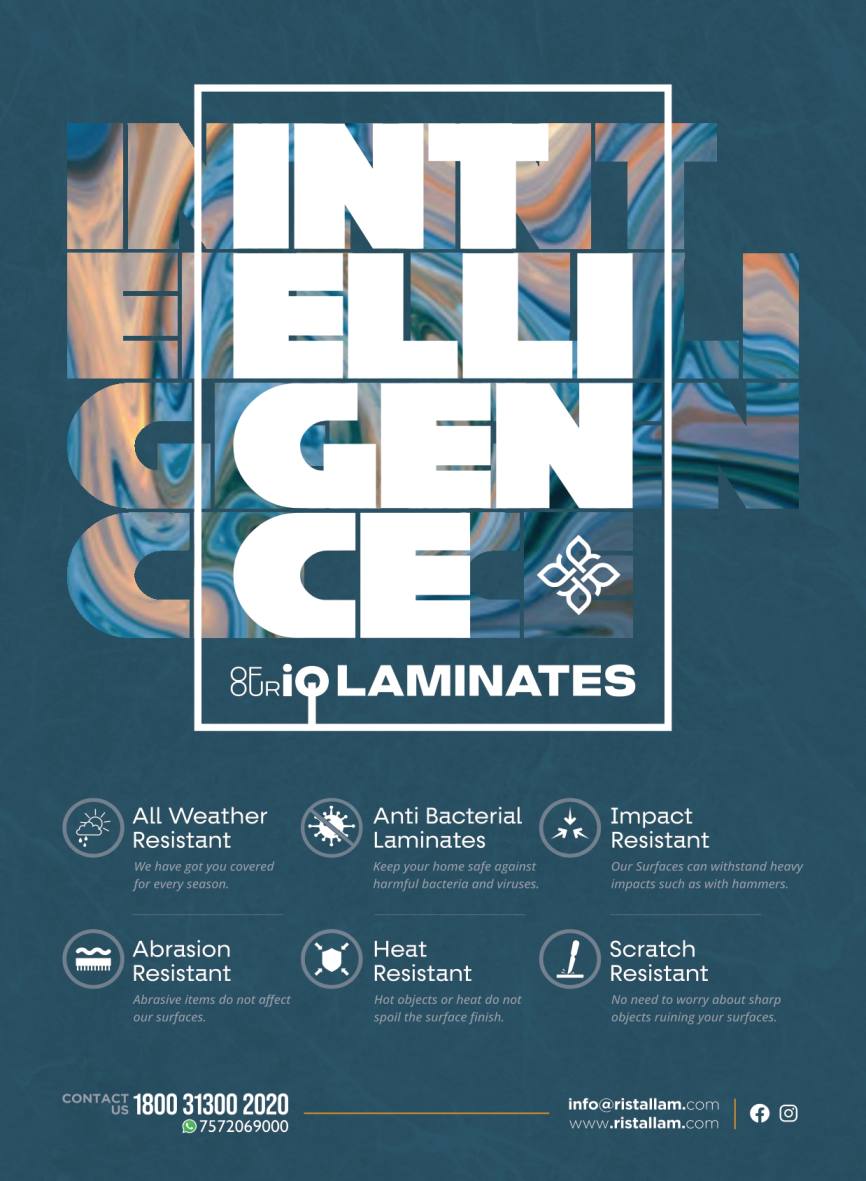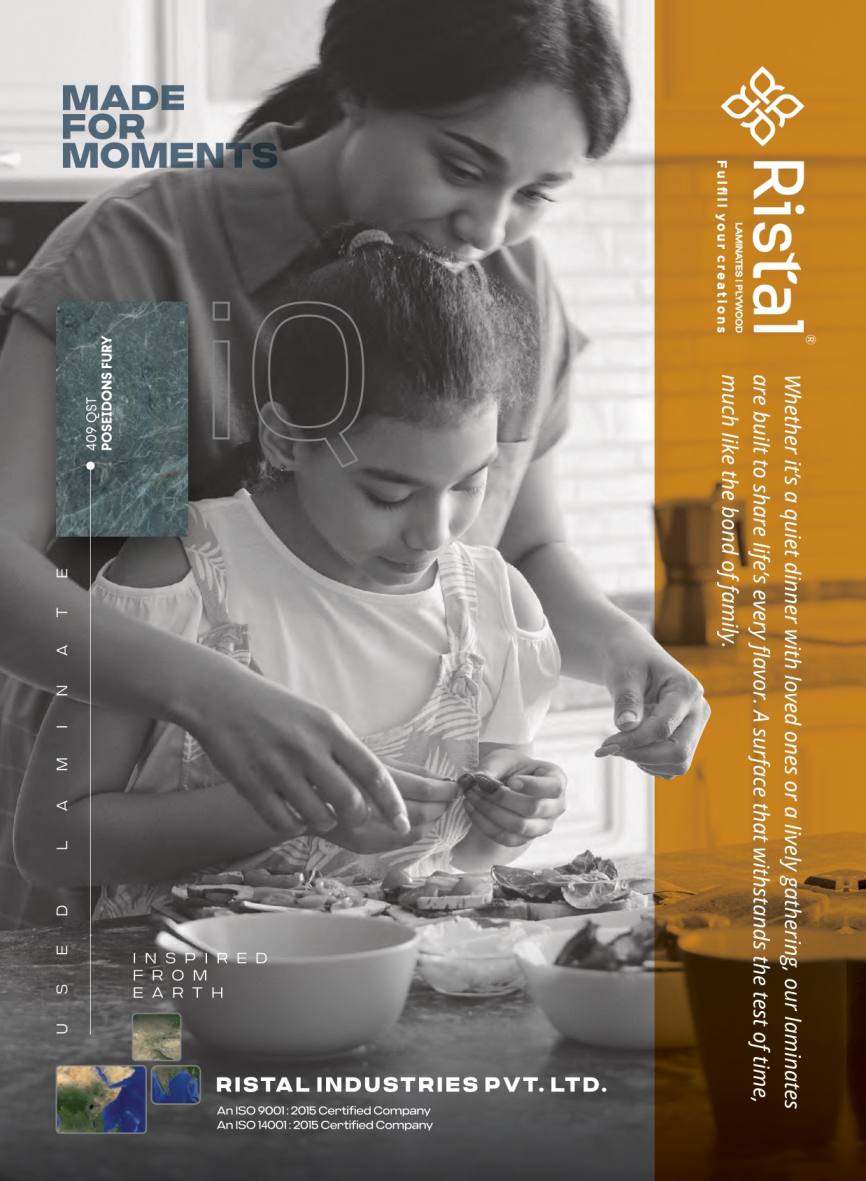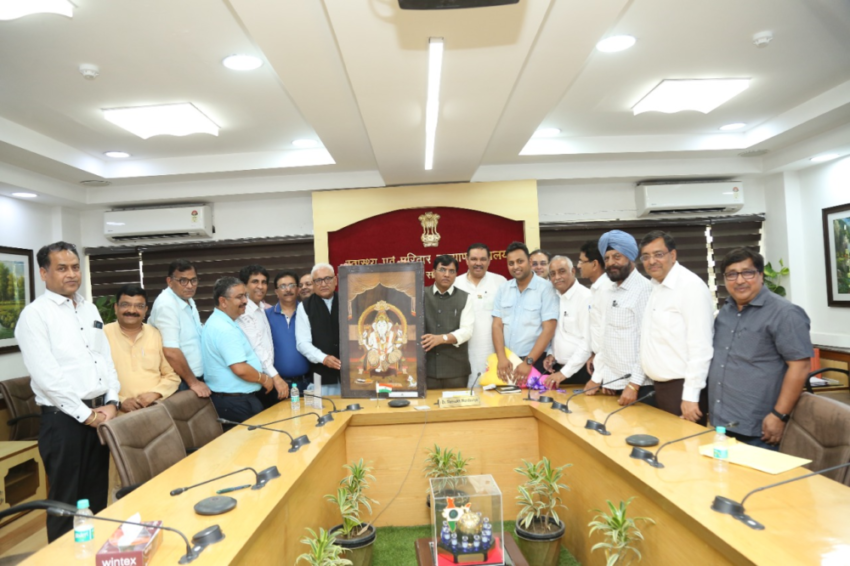
AIPMA delegates meet Union fertilizer minister Mansukh Mandaviya
- July 6, 2022
- 0
Government strict on Subsidized fertilizer
AIPMA delegates meet Union fertilizer minister Mansukh Mandaviya
The government has started taking strict steps regarding the use of urea in industries. Raids are being conducted across the country to curb the system.
In the last one-and-a-half months about 35,000 sacks of urea have been seized. The government has come to know that a group of importers have sold more than five times the total imports of their technical grades in the market. Of the six such people, two have been arrested while seven FIRs (First Information Reports) have been registered.
Usually, urea is required in industries such as plywood, animal feed, crockery, dye and molding powder. These industries require about 15 lakh tonnes of urea annually.
Urea is a highly subsidized fertilizer and is sold to farmers at only Rs 300 per bag, while its actual cost is around Rs 3,000 per bag at present.
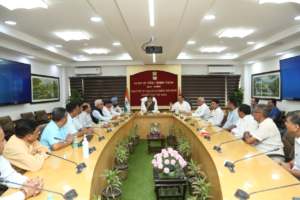
The Department of Fertilizers has constituted a special team ‘Fertilizer Flying Squad’ to conduct surprise inspections of fertilizers and related units with a view to check, black marketing and supply of subsidized fertilizers.
Goods and Services Tax (GST) evasion of Rs 63.4 crore has been detected during search operations on major suppliers of industrial grade urea, out of which Rs 5.14 crore has been recovered.
An unaccounted stock of 25,000 bags of agriculture-grade urea was found and confiscated.
Strict action is being taken under CGST Act, Fertilizer Control Order 1985 and Essential Commodities Act against those found involved in diversion of agro-grade urea to industries.
CAG will audit to assess actual consumption of urea in agriculture sector
The government’s fertilizer subsidy expenditure is expected to increase to around Rs 2.25 lakh crore in the current fiscal from Rs 1.62 lakh crore last year. The annual domestic consumption of urea is 325-350 lakh tonnes. Experts say that only 30 percent of urea is being used in agriculture, the rest is being used in industry. Till now the government’s was not attentive to this, because the subsidy gap was less. Now the government subsidy on urea has increased manifold. This caused a fiscal crisis to the government. To avoid this, the government has started taking steps to ban the use of urea in the industry. The Central government has taken another initiative, by giving the responsibility to CAG to audit in the country and assess the actual consumption of urea in the agriculture sector every year.
Question is what should the industry do?
All the plywood factories of the country including Haryana, Punjab, UP Gujarat have been badly affected by this. Urea is used to prepare glue. The government’s strictness has created a problem for the plywood industry. Industrialists say that they are ready to pay extra for urea. But for this the government should prepare some system. The problem is that urea is mostly imported. There is no provision to provide non subsidized urea to industrialists.
Why should not the government directly put the subsidy of urea fertilizer in the account of farmers.
A suggestion is also being given that many types of subsidies like LPG are being put directly into the bank account. Similarly, subsidy of urea should also be directly deposited in the account of farmers. This may end the urea crisis in the industry. Black marketing of urea will also stop automatically. Industrialists have also agreed to this system. Yet the government is hesitant to adopt it. Because the government no longer wants to anger the farmers. An official of the Union Chemicals Ministry said that there may be opposition to this decision of the government by farmers. Apart from this, certain constitutional procedures should be formulated/ amended to make it feasible.
Why target plywood only? Urea is also used in many other products.
The plywood manufacturer also complains that urea is also used in PVC, animal feed, crockery, dye, Textiles and molding powder. Yet the biggest target is plywood. Plywood manufacturers say that they should not be targeted like this.
AIPMA met Union Minister Mansukh Mandaviya and demanded a solution to the problem
AIPMA met Union Chemical and fertilizer Minister Mansukh Mandaviya and apprised him about the problems being faced by the industry regarding urea. The meeting was attended by executive members Vikas Khanna, Manish Kedia, Subhash Gupta, Sanjay Garg and Sunil Goel representing DNPMA. Shri Davinder Chawla, Shri JK Bihani, Shri Sant Gyaneshwar, Shri Rajesh Maskara from HPMA Yamunanagar. Mr. Naresh Tiwari, Mr. Inderjit Singh Sohal, Mr. Surinder Arora, Mr. Mahesh Gupta, Mr. Gopal Agarwal, Mr. Satish Gupta from PPMA Punjab. Mr. Mujeeb Rahman, Mr. KM Ibrahim, Mr. Mohammad Shah, Mr. KM Ryan from SIPMA. Mr. Ashok Agarwal, Mr. Pushpender Mohan from UP and UK PMA.
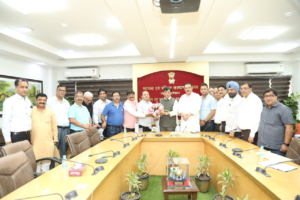
The delegation told the minister that the plywood industry is being affected by the steps of the government regarding urea. Whereas technical urea is mostly used in plywood industry, even after this, plywood manufacturers are being harassed. The delegation also demanded that more and more depots should be set up for technical urea. From where plywood manufacturers can easily buy technical grade urea. Because even the agencies importing technical urea is not working properly. TG urea is not imported as per the required quantity. Industry is humiliated and annoyed due to illegal transactions of these traders. Because of this, pressure is created on the industry. The minister assured the delegation that attention will be paid in this direction.
But the Minister said in clear words that subsidized urea should not be used in the industry. In this regard, more vigilance will be taken in future. There is also a request to the industry and a warning to use only technical grade. There will be no exemption from the government.
अनुदान प्राप्त उर्वरक पर सरकार सख्त
AIPMA प्रतिनिधिमंडल की केंद्रीय उर्वरक मंत्री मनसुख मांडविया से मुलाकात
यूरिया के उद्योगों में इस्तेमाल को लेकर सरकार ने सख्त कदम उठाना शुरू कर दिया है। इसके लिए देश भर में छापामारी हो रही है।
पिछले डेढ़ महीने में यूरिया की लगभग 35,000 बोरियां जब्त की हैं। सरकार को पता चला है कि आयातकों के एक समूह ने अपने टेक्नीकल ग्रेड के कुल आयात के पांच गुना से अधिक को बाजार में बेच दिया है। ऐसे छह लोगों में से दो को गिरफ्तार किया गया है जबकि सात प्राथमिकी (प्रथम सूचना रिपोर्ट) दर्ज की गई हैं।
आमतौर पर यूरिया की जरूरत प्लाईवुड, पशु चारा, क्रॉकरी, डाई और मोल्डिंग पाउडर बनाने वाले उद्योगों में होती है। इन उद्योगों को सालाना लगभग 15 लाख टन यूरिया की आवश्यकता होती है।
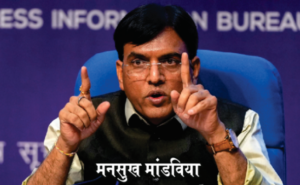 यूरिया अत्यधिक सब्सिडी वाला उर्वरक है और किसानों को केवल 300 रुपये प्रति बोरी पर बेचा जाता है, जबकि इसकी वास्तविक लागत अभी लगभग 3,000 रुपये प्रति बैग है।
यूरिया अत्यधिक सब्सिडी वाला उर्वरक है और किसानों को केवल 300 रुपये प्रति बोरी पर बेचा जाता है, जबकि इसकी वास्तविक लागत अभी लगभग 3,000 रुपये प्रति बैग है।
उर्वरक विभाग ने सब्सिडी वाली उर्वरकों की कालाबाजारी और आपूर्ति पर रोक लगाने के मकसद से उर्वरक एवं संबंधित इकाइयों का औचक निरीक्षण करने के लिए विशेष टीम ‘उर्वरक उड़न दस्ते‘ का गठन किया है।
औद्योगिक ग्रेड यूरिया के प्रमुख आपूर्तिकर्ताओं पर तलाशी अभियान के दौरान 63.4 करोड़ रुपये की माल एवं सेवा कर (जीएसटी) की चोरी का पता चला है, जिसमें से 5.14 करोड़ रुपये की वसूली की जा चुकी है। कृषि-ग्रेड वाले यूरिया के 25,000 बैग का एक बेहिसाब स्टॉक पाया गया और जब्त कर लिया गया।
कृषि-ग्रेड यूरिया को उद्योगों को बेचने (डायवर्सन करने) में शामिल पाए जाने वालों के खिलाफ सीजीएसटी अधिनियम, उर्वरक नियंत्रण आदेश 1985 और आवश्यक वस्तु अधिनियम के तहत कड़ी कार्रवाई की जा रही है।
कैग ऑडिट करके बताएगी कृषि क्षेत्र के लिए कितना यूरिया चाहिए
सरकार का उर्वरक सब्सिडी खर्च पिछले साल के 1.62 लाख करोड़ रुपये से बढ़कर चालू वित्त वर्ष में लगभग 2.25 लाख करोड़ रुपये पर पहुंचने का अनुमान है। यूरिया की वार्षिक घरेलू खपत 325-350 लाख टन है। जानकारों का कहना है कि कृषि क्षेत्र में यूरिया मात्र 30 प्रतिशत प्रयोग हो रहा है, बाकी का यूरिया इंडस्ट्री में प्रयोग हो रहा है। अभी तक सरकार का ध्यान इस ओर नहीं था, क्योंकि तब सब्सिडी का गैप कम था। अब सरकार को यूरिया पर बहुत ज्यादा सब्सिडी देनी पड़ रही है। इससे सरकार के सामने संकट आ गया। इससे बचने के लिए सरकार ने यूरिया के इंडस्ट्री में इस्तेमाल पर रोक लगाने के लिए कदम उठाने शुरू कर दिए हैं। इसके साथ ही केंद्र सरकार ने एक और पहल की है, कैग को जिम्मेदारी दी गई कि वह देश में ऑडिट कर यह बताए कि प्रति वर्ष कृषि क्षेत्र में यूरिया कितना चाहिए।
लाख टके का सवालः इंडस्ट्री क्या करें?
हरियाणा, पंजाब, यूपी गुजरात समेत देश की सभी प्लाईवुड फैक्ट्री इससे बुरी तरह से प्रभावित हो गई है। ग्लू बनाने के लिए यूरिया का इस्तेमाल होता है। अब सरकार की सख्ती से प्लाइवुड इंडस्ट्री के लिए समस्या पैदा हो गई है। उद्योगपतियों का कहना है कि वह यूरिया के ज्यादा दाम चुकाने के लिए तैयार है। लेकिन इसके लिए सरकार कोई सिस्टम तो तैयार करे। दिक्कत यह है कि यूरिया ज्यादातर आयात हो रहा है। उद्योगपतियों को बिना सब्सिडी के यूरिया उपलब्ध कराने का कोई प्रावधान नहीं है।
क्यों न किसानों के खाते में यूरिया खाद का अनुदान सरकार सीधा डाल दें
एक सुझाव यह भी दिया जा रहा है कि जिस तरह से रसोई गैस व कई तरह की सब्सिडी सीधे बैंक खाते में डाली जा रही है। इसी तरह से यूरिया की सब्सिडी भी सीधी किसानों के खाते में डाल दी जाए। इससे इंडस्ट्री के सामने यूरिया का संकट खत्म हो सकता है। यूरिया की कालाबाजारी भी अपने आप रुक जाएगी। इस सिस्टम पर उद्योगपति भी राजी है। फिर भी सरकार इसे अपनाने से गुरेज कर रही है। क्योंकि सरकार अब किसानों को नाराज नहीं करना चाहती। केंद्रीय रसायन मंत्रालय के एक अधिकारी ने बताया कि सरकार के इस निर्णय का किसानों द्वारा विरोध भी हो सकता है. इसके अलावा ऐसी कुछ व्यवस्थागत दिक्कतें है, जिसके लिए सविंधान में संशोधन की आवश्यकता होगी।
प्लाईवुड को ही टारगेट क्यों? यूरिया तो कई अन्य उत्पाद में भी प्रयोग होता है
प्लाईवुड निर्माता की यह भी शिकायत है कि प्लाइवुड के अलावा पीवीसी, पशु चारा, क्रॉकरी, डाई टैक्सटाइल और मोल्डिंग पाउडर में भी यूरिया का इस्तेमाल हो रहा है। फिर भी सबसे ज्यादा निशाना प्लाईवुड पर साधा जा रहा है। प्लाईवुड निर्माताओं का कहना है कि उन्हें इस तरह से टारगेट नहीं किया जाना चाहिए।
एआईपीएमए ने केंद्रीय मंत्री मनसुख मंडाविया से मुलाकात कर समस्या के समाधान की मांग की
एआईपीएमए ने केंद्रीय रसायन एवं उर्वरक मंत्री मनसुख मांडविया से एक मुलाकात कर यूरिया को लेकर इंडस्ट्री को आ रही दिक्कतों से अवगत कराया। बैठक में डीएनपीएमए से प्रतिनिधित्व में कार्यकारी सदस्य विकास खन्ना, मनीष केडिया, सुभाष गुप्ता, संजय गर्ग और सुनील गोयल। HPMA यमुनानगर से श्री देविंदर चावला, श्री जेके बिहानी श्री संत ज्ञानेश्वर, श्री राजेश मस्कारा। PPMA पंजाब से श्री नरेश तिवारी, श्री इंद्रजीत सिंह सोहल, श्री सुरिंदर अरोड़ा, श्री महेश गुप्ता, श्री गोपाल अग्रवाल, श्री सतीश गुप्ता। SIPMA से श्री मुजीब रहमान, श्री के.एम इब्राहिम, श्री मोहम्मद शाह, श्री के.एम रियान. UP और UK PM से श्री अशोक अग्रवाल, श्री पुष्पेंदर मोहन शामिल थे।
प्रतिनिधिमंडल ने मंत्री को बताया कि यूरिया को लेकर सरकार जो कदम उठा रही है, इससे प्लाइवुड उद्योग प्रभावित हो रहा है। जबकि प्लाईवुड उद्योग में अधिकांशतः टेक्निकल यूरिया का ही प्रयोग हो रहा है, इसके बाद भी प्लाईवुड निर्माताओं को परेशान किया जा रहा है। प्रतिनिधि मंडल ने यह भी मांग की कि टेक्निकल यूरिया के लिए ज्यादा से ज्यादा डिपो बनाए जाने चाहिए। जहां से प्लाईवुड निर्माता आसानी से टेक्निकल ग्रेड यूरिया खरीद सके। क्योंकि टेक्निकल ग्रेड यूरिया का आयात करने वाली एजेंसी भी सही से काम नहीं कर रही है। उतनी मात्रा में यह यूरिया मंगाया ही नहीं जाता, जितनी जरूरत है। उनके द्वारा किये गये कुकृत्य की वजह से उद्योग परेशान और निंदित हो रही है. इस वजह से इंडस्ट्री पर दबाव बनता है। मंत्री ने प्रतिनिधिमंत्रल को आश्वासन दिया कि इस संबंध में ध्यान दिया जाएगा।
लेकिन मंत्री जी ने साफ शब्दों में कहा कि उद्योग में सब्सिडी वाली युरिया का उपयोग नहीं किया जाए।इस संबंध में भविष्य में और भी अधिक सतर्कता और कड़ाई बरती जाएगी। उद्योग से आग्रह भी है और चेतावनी भी है कि टेक्नीकल ग्रेड का ही इस्तेमाल करें। सरकार की ओर से कोई छुट मिलने वाली नहीं है।

